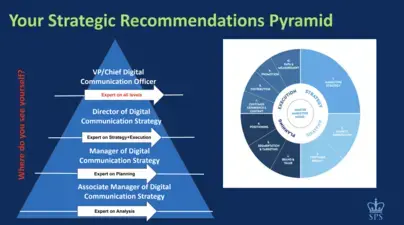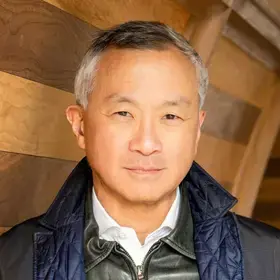By Joseph Hanson (23SPS, Strategic Communication)
In July, Dr. Lilian Ajayi Ore, Ed.D., was appointed as a full-time faculty member in the Strategic Communication program. Dr. Ore had been an adjunct lecturer in the program for the past two years, and she will continue to teach the Digital Communication Strategy (DCS) course.
Dr. Ore is an award-winning chief learning officer, chief marketing executive, research scholar, and data scientist with over seventeen years of industry experience working with Fortune 500 companies like Panasonic, NBC Universal, IBM, and other significant organizations, including the United Nations and the American Society of Engineers. A LinkedIn Top Voice in Leadership Development. She founded the award-winning Global Connections for Women Foundation, an organization that provides:
- Leadership and entrepreneurship training.
- Executive coaching.
- Mentorship programs to support female entrepreneurs and to propel women’s advancement within the workplace.
In an interview with Joseph Hanson (23’SPS), Dr. Ore discussed her motivation for teaching the DCS class, how her professional experience informs her course, and what her advice is for graduates of the Strategic Communication program.
What approach do you use in the classroom and why?
I developed the “Strategic Recommendations Pyramid'' to introduce students in the Digital Communication Strategies course to design-thinking and to enable them to view themselves as strategic thinkers and communications scholars. The pyramid allows students to assess their responses based on on-the-job expectations. They can expand their strategic recommendations based on the requirements of specific roles with each course assignment and group project, as seen in the image below. DCS students have learned to appreciate the feedback portion of their assignments. Throughout the course, students learn to adjust their mindset based on their professional aspirations.
Ultimately, the “Strategic Recommendations Pyramid” helps students understand what the expectations are in various roles within an organization and gives them the opportunity to position themselves to understand what is required to effectively function as a digital communications strategist and communication expert.

How do your career experiences translate into the classroom?
The teaching allows me to bring the best of every single professional experience that I have encountered into the classroom and to create examples that my students can learn from. I am able to connect them to the latest academic literature and practices, industry practitioners, and the framework that will help them build strategies that are sustainable and innovative.
My superpower as a data scientist increases my desire to transform students in my course into mini-data analysts and digital scientists because I believe that the best digital communication strategists and scholars are brilliant data analysts and digital strategy scientists.
Data inquiry is very important in improving your professional acumen in the digital space, and whenever I teach my class, I tell them to start with the data. With data inquiry, students can understand the historical background of the business, the conceptual history of their business approach, and where they are in terms of their digital marketing solutions. I also want them to look at the data, the financials of the company, and the type of investment they put into their marketing, as these are attitudinal indications of the type of culture and work ethic the organization has. Data plays a very key role in narrowing down your scope and giving you quantitative analysis of the big picture.
Outside the classroom, you run an award-winning nonprofit organization, Global Connections for Women Foundation (GC4W). Can you tell us about the organization and your role?
I wanted to give back. I wanted my life to have multiple layers. I have been blessed as an educator, data scientist, and marketing executive, but I wanted to give something more to society. Starting GC4W is my outlet for giving back. I always bring it up in my classroom. I always tell my students, all the time: Remember, as you climb the corporate ladder, as you do more in the world, as you build your professional acumen—remember to give back to society.
Our mission is to connect, educate, and empower by providing female entrepreneurs and business professionals with access to resources, educating them on how to use them, and potentially creating an environment that enables their empowerment. This access is provided through our yearly conferences, webinars, training programs, and the GC4W Executive network. We hope that it empowers women and others to think differently and achieve more using the tools we share with them.
What is your advice for students pursuing a career in strategic communication?
When I look at my professional experiences, there was an intentionality behind how I chose my different roles, the organizations I do work for, and the projects I take on. So, the overarching theme is to be intentional. Do not settle.
There is a lot of pressure to just get a job. You are getting a master’s from Columbia University. You do not just want a job, you want the job that makes you feel like you are achieving something. You want a job that you intended to get. So if it means waiting a little bit longer to land that job, then why not wait? Career planning is also very important in this journey. Make sure you are responsible for how your career goes and your intention about what you want to be and what you want to get out of that experience.
About the Program
The business world’s around-the-clock communications challenges are demanding a new level of strategic thinking. Columbia University’s Master of Science in Strategic Communication graduates emerge equipped with all the essential skills and tools for a successful career in a wide range of communication fields.


